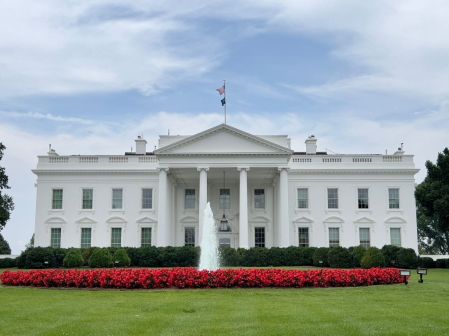Exclusive: White House will fix way government buys software
The White House is looking to fix the duplicative, expensive and notoriously poorly managed way federal agencies buy software licenses with new governmentwide guidance.
Anne Rung, administrator of the Office of Management and Budget’s Office of Federal Procurement Policy, exclusively previewed the guidance, to be published Tuesday in the Federal Register, in an interview with FedScoop.
The proposed guidance will be accompanied by a memo, she said, called “Category Management Policy 16-1: Improving the Acquisition and Management of Common Information Technology: Software Licensing.” It focuses on “more centralized management of software both within the agencies and governmentwide,” Rung told FedScoop.
“It’s really kind of moving toward holding agencies accountable for their purchasing and management,” she said.
This new guidance, out for 30 days for public comment, echoes the recent memo from Rung and U.S. Chief Information Officer Tony Scott on the standard configuration of federal desktop and laptop computers, and limiting agencies to already-existing contracts for those devices.
“We have a really fragmented and inefficient marketplace, particularly around software,” Rung said, and there’s countless Government Accountability Office documentation detailing the $9 billion in poor spending on software licenses among more than 50,000 transactions.
“We buy and manage in a very decentralized manner, we struggle to create accurate inventories — so we don’t know what we own — we often purchase unneeded capabilities, and we’re not sharing information across government like pricing terms,” she said.
Rung noted a couple of guiding elements to this new policy, the foremost of which requires agencies to appoint a software manager and team to report to its CIO. At a minimum, they’ll have to “develop a plan for moving to a more centralized management of their licenses” and “develop a plan to increase the use of governmentwide software license agreements,” Rung said. “And not only just develop a plan, but do it.”
Sometime early next year agencies will have to submit the contact of their software manager to OMB. These officials will be held accountable for efficiently managing their agency’s software licensing, she said.
The memo also moves agencies to maintain “a comprehensive annual inventory of software licenses … including license count and usage,” she told FedScoop. Part of this will be using continuous diagnostics and mitigation to keep a current report on software inventory and usage. Agencies will have to do so by the start of next fiscal year, Rung said. OMB will develop metrics, which will be posted to PortfolioStat, to hold agencies accountable on their progress, she added.
[Read more: The many flavors of innovative acquisition aren’t so different]
Key to all of this is that agencies will be forbidden from entering terms and agreements with companies that prohibit them from sharing pricing and other conditions, and must aggregate their requirements.
“This is something we saw as sort of fundamentally hurting us in terms of a core principle of category management is greater sharing and collaboration,” she said. “But people were entering into these terms and agreements with companies” prohibiting sharing. “So we’re saying they will not.”
These new efforts will work in concert with the enterprisewide software category team — led by members of the General Services Administration, the Defense Department and OFPP — as part of the federal government’s move to category management procurement on the digital Common Acquisition Platform, a gateway for unified and centralized governmentwide contracting. This team will take the lead on “identifying and promoting existing best-in-class agreements” in government and striking new deals in areas where software licensing is most fragmented.
“As a result of these efforts, the government is going to begin gaining visibility into all of our agency-reported governmentwide spend on software licenses because all of the spend on these vehicles will be posted on the acquisition gateway,” Rung said.
Already, GSA has led and is ready to launch the first of four governmentwide agreements the category team has been exploring. GSA has struck a deal with geospatial software developer Esri to provide its products on a single governmentwide contract.
Speaking of the discussion that led up to that agreement, Rung said “at least in one small space, we know there’s 41 separate agreements across government [for Esri products]. And you know it’s inefficient for us. So how can mutually move forward to draw better performance and savings in this area?”
Rung said the category team has plans to launch the other agreements in coming months.
OMB’s work toward reducing desktop and laptop contracting ineffiecency has already proven quite successful, Rung said, citing a 50 percent price reduction on the standard configuration NASA has consolidated to on its SEWP governmentwide contracting vehicle. Her hope is the software guidance — because the team involved agency input from the beginning — will see similar success.
“We’re pleased that we’re starting to see results in these areas,” she said. “I feel like the IT category management memos around work stations and software are really first of their kind where we’re really sort of leaning in a space that we haven’t in the past.”
Reach the reporter on this story at billy.mitchell@






